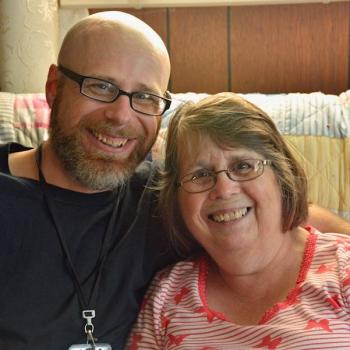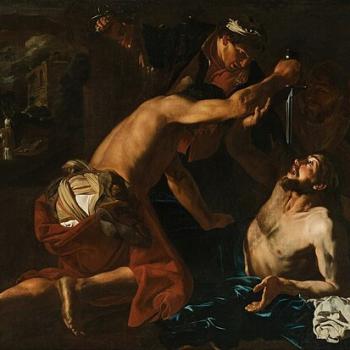
By Tim Muldoon
The recent news that the University of Notre Dame will host U.S. President Barack Obama as its 164th commencement speaker has provoked no small amount of commentary in the news media and the blogosphere.
Commentary:
The Tablet (London)
National Catholic Register
National Catholic Reporter
Protest website (notredamescandal.com)
Commonweal
The story of the Church in the United States in the twentieth century is a story of immigrants moving from the margins to the center, nourished all the way by the comforting arms of mother Church. And so it is no surprise that for a great many of ND alumni (and many Catholics in general), the presence of a sitting U.S. president on campus is highly symbolic: it shows a community come of age.
Yet the importance of such a moment is, for many, deeply scarred by the fact that the President’s positions on two of the most prominent moral issues facing Catholics—abortion and stem cell research—are at odds with the positions of many Catholics, both in the United States and abroad. These two issues are very much at the heart of the Church’s moral teaching in recent years, and constitute for many rank-and-file Catholics the preeminent challenges of building what Pope John Paul II called a “culture of life.” In short, many Catholics see these issues not merely as items on a voting checklist, but rather as the central concerns of what it means to be servants to a broken world.
Many, then, are outraged that a Catholic university would not only invite such a prominent speaker to campus, but also bestow an honorary degree, a sign that the speaker represents the ideals for which the University stands.
To be sure, the presence of a U.S. president on any campus is a boon for that institution; it brings prestige and a host of media coverage. Universities are in the business of raising important questions, and so the desire to bring even controversial speakers to campus is part of what any college or university ought to be doing.
Fortunately, Catholic institutions can take the long view: they’ve been around for about a thousand years, and can recognize that world leaders come and go like the rain. Their aim is necessarily bigger: to harness the basic human desire to understand the world, and to orient that desire toward doing the good, in imitation of Jesus.
Catholic higher education is built upon a basic optimism about human knowledge, an optimism that arose out of a medieval scholastic context which saw God’s grace as perfecting what was already a basically good human nature, though flawed by sin. Accordingly, Catholic colleges and universities must constantly engage with those whose positions challenge current opinion; without this academic optimism, Catholic colleges and universities would devolve into little more than provincial outposts of uncritical indoctrination.
Cardinal Newman’s basic argument is correct: the university is about seeking truth, even in an age in which the very notion of truth is controverted. The uniqueness of Catholic higher education is precisely the fact that it can see pro and con, sic et non, with the virtue of hope rather than the imperative of power. To issue a challenge on every occasion when a speaker challenges Church teaching on a Catholic campus is to negate an important dynamic of college and university life. Saint Augustine held that God’s gift of human freedom means that all human beings have the possibility to choose evil; similarly, real academic freedom means that all members of a college or university community must have exchange of ideas.
The real betrayal, though, felt by the nearly 250,000 signers of the petition (as of April 6) is that the honorary degree which accompanies the commencement speech is not merely an exercise in academic integrity. It is an honor, a recognition that the speaker’s words are not only beneficial in the formal sense of contributing to free speech, but also beneficial in the material sense of being right.
Inasmuch as any Catholic college or university orients itself toward truth, in the long run it has nothing to fear from its discernment of these questions, however long that takes. Yet its cause is not helped by suggesting that a politician at odds with a significant number of Catholics—enough to promote controversial legislation within only a few weeks of his new office—is an exemplar of the ideals symbolized by the honorary degree.
Related Links:




